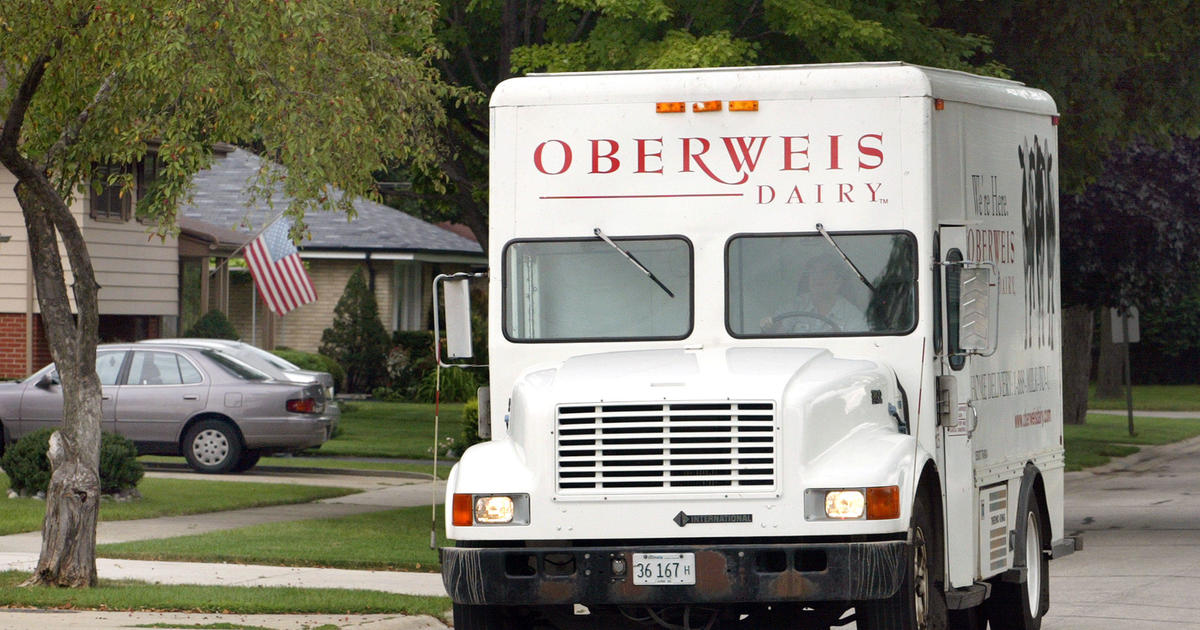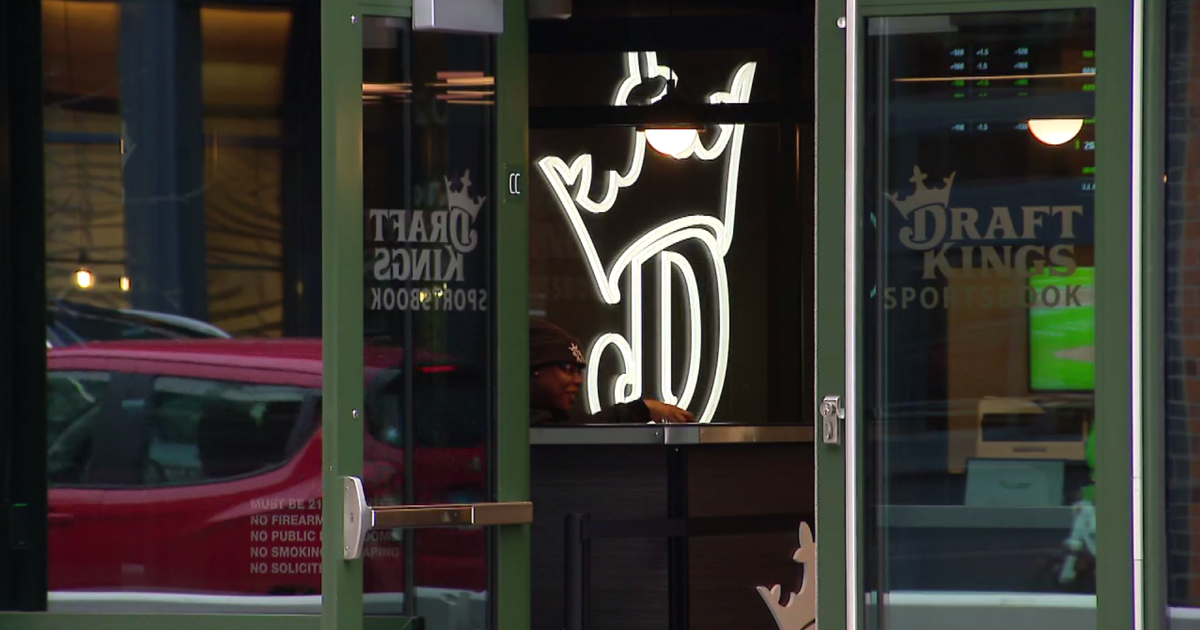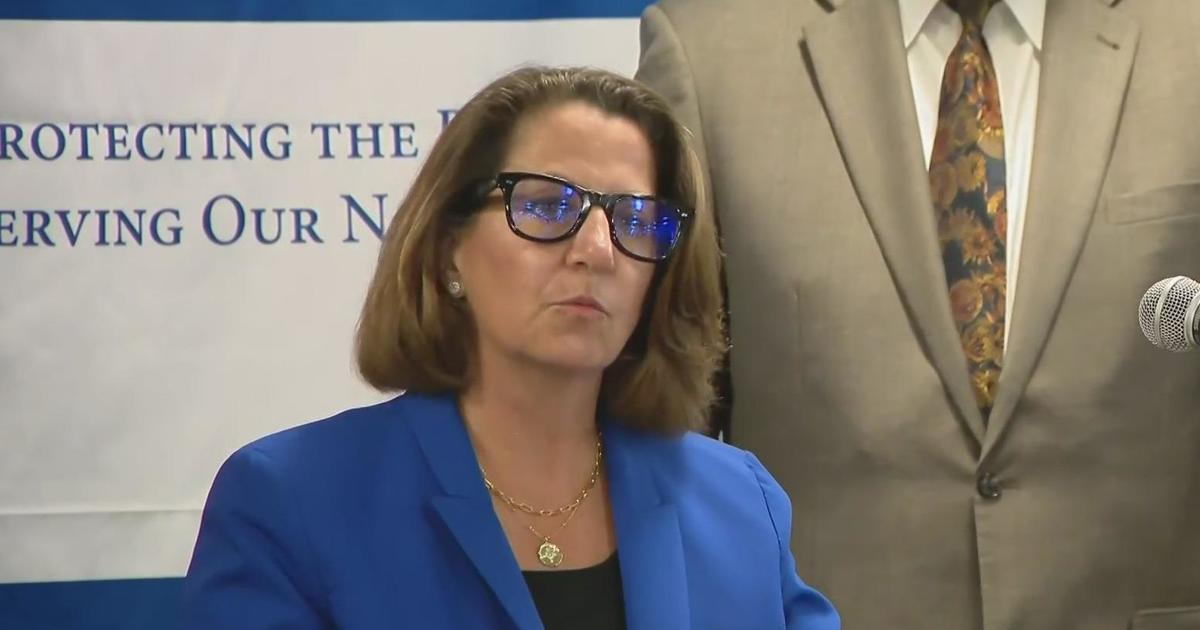Auto Workers Go On Strike At GM Factories Amid Contract Impasse
CHICAGO (CBS/AP) -- Tens of thousands of United Auto Workers were on strike across the country on Monday, after they couldn't reach an agreement on a new four-year contract with General Motors.
UAW members hit the picket lines Monday morning outside 33 plants and 22 warehouses, after they walked off factory floors in the first national strike since a two-day walkout in 2007.
The strike started at midnight. More than 45,000 General Motors employees walked out on the job, shutting down 33 manufacturing plants and 22 distribution warehouses in nine states, including Indiana and Michigan.
Night shift workers at an aluminum castings factory in Bedford, Indiana, that makes transmission casings and other parts shut off their machines and headed for the exits, said Dave Green, a worker who transferred from the now-shuttered GM small-car factory in Lordstown, Ohio.
Green, a former local union president, said he agrees with the strike over wages, plant closures and other issues.
"If we don't fight now, when are we going to fight?" he asked. "This is not about us. It's about the future."
Although union auto workers at the Ford Assembly Plant in Chicago are not affected by the strike – UAW has indefinite contract extensions with Ford and Chrysler until the GM contract is settled – leaders at UAW Local 551 say they support their fellow members on strike.
"We're prepared to stand with other UAW members from GM on the picket lines, and support them with whatever they need right now," UAW Local 551 President Chris Pena said. "Hopefully this doesn't prolong [contract negotiations]. We'd really like them to come on agreement on a fair contract, so that the length of time that they're out is shortened."
If the GM workers' strike continues past Thursday, auto workers at the Ford plant in Chicago plan to send a delegation to the General Motors plant in Fort Wayne, Indiana, to show their support.
The union is pressing for better wages, more affordable healthcare, improved job security, and other issues.
"With the plants all going out at the same time, I think it'll make it a lot more serious for General Motors to come to the table in good faith," UAW Local 2209 bargaining chairman Rich LeTourneau said.
UAW Vice President Terry Dittes, the union's top GM negotiator, said a strike is the union's last resort but is needed because both sides are far apart in negotiating a new four-year contract. The union, he said Saturday, does not take a strike lightly.
"We clearly understand the hardship that it may cause," he said. "We are standing up for fair wages, we are standing up for affordable quality health care, we are standing up for our share of the profits."
UAW has said GM budged very little during months of contract talks, but GM said it's offering pay raises, billions of dollars worth of factory investments, and higher profit-sharing for union workers.
"We've also offered wage increases and/or lump-sum increases over the life of this contract," GM executive vice president Gerald Johnson said.
It's unclear how long the strike will last. Both sides will continue negotiations Monday morning.
The union's contract with GM expired Saturday night, along with pacts with Ford and Fiat Chrysler, but the union has signed indefinite contract extensions with Ford and Chrysler. UAW has picked GM as its target company this year, and any deal it negotiates will be used as a template for the others. GM was picked because it's the most profitable of the three, and because its plans to close four U.S. factories have angered union members.
On Sunday, about 200 plant-level leaders voted unanimously to strike against GM if no deal could be reached by Sunday night. Although talks were halted over the weekend, UAW spokesman Brian Rothenberg said there was still dialogue.
Before the talks broke off, GM offered to build a new all-electric pickup truck at a factory in Detroit that is slated to close next year, according to a person who spoke to The Associated Press on condition of anonymity. The person wasn't authorized to disclose details of the negotiations.
The automaker also offered to open an electric vehicle battery plant in Lordstown, Ohio, where it has a huge factory that has already stopped making cars and will be closed. The new factory would be in addition to a proposal to make electric vehicles for a company called Workhorse, the person said.
It's unclear how many workers the two plants would employ. The closures, especially of the Ohio plant, have become issues in the 2020 presidential campaign. President Donald Trump has consistently criticized the company and demanded that Lordstown be reopened.
Rothenberg said UAW was striking for fair wages, affordable health care, profit sharing, job security and a path to permanent employment for temporary workers.
GM has factories in Michigan, Ohio, New York, Kentucky, Tennessee, Texas, Missouri, Indiana and Kansas.
A strike would bring to a halt GM's U.S. vehicle and parts production, and would likely stop the company from making vehicles in Canada and Mexico as well. That would mean fewer vehicles for consumers to choose from on dealer lots, and it would make it impossible to build specially ordered cars and trucks.
Analysts at Cox Automotive said GM has enough vehicles on dealer lots to last about 77 days at the current sales pace. That's well above the industry average of 61. But supplies of the Chevrolet Tahoe and Suburban large SUVs, which generate big money for the company, are well below the industry average.
The talks this year have been overshadowed by a growing federal corruption probe that snared a top union official on Thursday. Vance Pearson, head of a regional office based near St. Louis, was charged in an alleged scheme to embezzle union money and spend cash on premium booze, golf clubs, cigars and swanky stays in California. It's the same region that UAW President Gary Jones led before taking the union's top office last year. Jones himself has been touched by the investigation, leading some union members to call for him to step down, but he hasn't been charged.
This year's talks between the union and GM were tense from the start, largely because of GM's plan to close four U.S. factories, including the one on the Detroit border with the enclave of Hamtramck, as well as Lordstown and factories in Warren, Michigan, and near Baltimore.
Here are the main areas of disagreement:
— GM is making big money, $8 billion last year alone, and workers want a bigger slice. The union wants annual pay raises to guard against an economic downturn, but the company wants to pay lump sums tied to earnings. Automakers don't want higher fixed costs.
— The union also wants new products for the four factories slated to close. GM currently has too much U.S. factory capacity, especially to build slower-selling cars.
— The companies want to close the labor cost gap with workers at plants run by foreign automakers. GM pays $63 per hour in wages and benefits compared with $50 at the foreign-owned factories. GM's gap is the largest at $13 per hour, according to figures from the Center for Automotive Research.
— Union members have great health insurance plans and workers pay about 4% of the cost. Employees at large firms nationwide pay about 34%, according to the Kaiser Family Foundation. Automakers would like to cut costs.
(© Copyright 2019 CBS Broadcasting Inc. All Rights Reserved. The Associated Press contributed to this report.)



